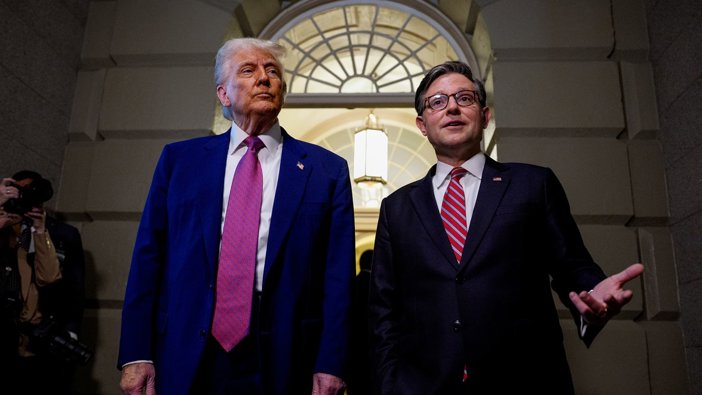
House, Senate at Odds Over Trump’s “Big Beautiful Bill”
House conservatives warn Senate revisions could derail Trump’s agenda as key GOP factions threaten to reject new bill.
GOP Divisions Deepen Over Sweeping Legislation
Deep divisions have emerged among congressional Republicans as House conservatives voice sharp opposition to Senate revisions of President Donald Trump’s sweeping legislative package, dubbed the “One Big Beautiful Bill.” The House-passed version, which includes major tax, immigration, defense, and energy policies, is now at risk as the Senate introduces changes to key provisions and raises the national debt limit.
“There’s real problems with it,” said Rep. Ralph Norman, R-S.C., highlighting widespread concerns within the House Freedom Caucus. The group objects strongly to the Senate’s decision to delay the expiration of green energy tax credits—a holdover from the previous administration’s Inflation Reduction Act—referring to the provisions as the “Green New Scam.” Additional controversy surrounds the Senate’s move to increase the U.S. debt limit by $5 trillion, exceeding the House’s proposal by $1 trillion.
While the House version of the bill passed by just one vote, Speaker Mike Johnson, R-La., has repeatedly urged the Senate to avoid major changes, warning that even small revisions could threaten final passage in the tightly divided chamber. However, Senate Majority Leader John Thune, R-S.D., faces his own internal challenges as he attempts to rally GOP support for a version of the bill that reflects the Senate’s priorities.
Key Policy Disputes and Leadership Tensions
Among the most contentious issues are the changes to the state and local tax (SALT) deduction and reforms to Medicaid, particularly tweaks to the provider tax rate. The Senate’s “Byrd bath” process has further complicated matters, striking out cost-saving measures that failed to comply with budget reconciliation rules. As a result, some cost-reduction proposals have been ruled out, fueling additional frustration among fiscal conservatives.
Several members of the House Freedom Caucus have publicly threatened to oppose the bill if it returns from the Senate in its current form. “If the Senate tries to jam the House with this version, I won’t vote ‘present.’ I’ll vote NO,” stated Rep. Andy Harris, R-Md. Other members, including Rep. Eric Burlison, R-Mo., and Rep. Chip Roy, R-Texas, echoed similar warnings, emphasizing the need to uphold House-passed priorities and resist Senate concessions.
President Trump, seeking to keep his agenda on track, has ordered congressional Republicans to remain in Washington until the legislation passes. “To my friends in the Senate, lock yourself in a room if you must, don’t go home, and GET THE DEAL DONE THIS WEEK,” he wrote on social media. The president has made it clear that no recess will be tolerated until the bill is sent to his desk.
Uncertain Path Forward
Despite these tensions, Senate leaders remain cautiously optimistic. Sen. Lindsey Graham, R-S.C., dismissed the House’s threats, insisting the Senate can produce a stronger bill. Sen. John Kennedy, R-La., noted the challenge of building consensus around such a far-reaching legislative package but expressed hope that continued negotiations would yield results. “Everybody’s not going to be completely happy. I’m not completely happy with where we are, and we’re not there yet. We’re making progress,” Kennedy said.
Speaker Johnson has attempted to downplay the divisions, framing the process as a “one-team approach” with House and Senate Republicans aligned alongside the White House. Still, the fragile GOP majorities in both chambers, combined with outspoken conservative opposition, mean the fate of Trump’s signature bill hangs in the balance. As the Fourth of July deadline approaches, all eyes are on Congress to see whether compromise or further discord will define the Republican legislative agenda.






